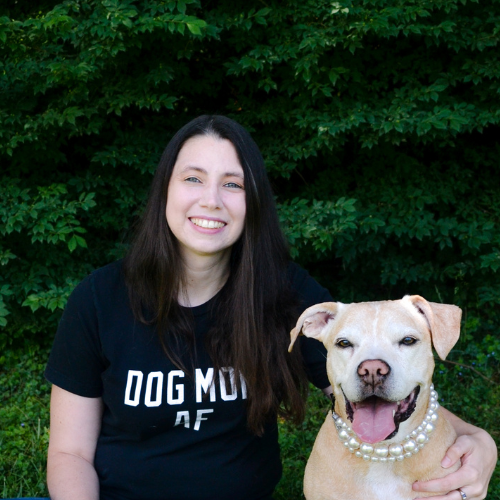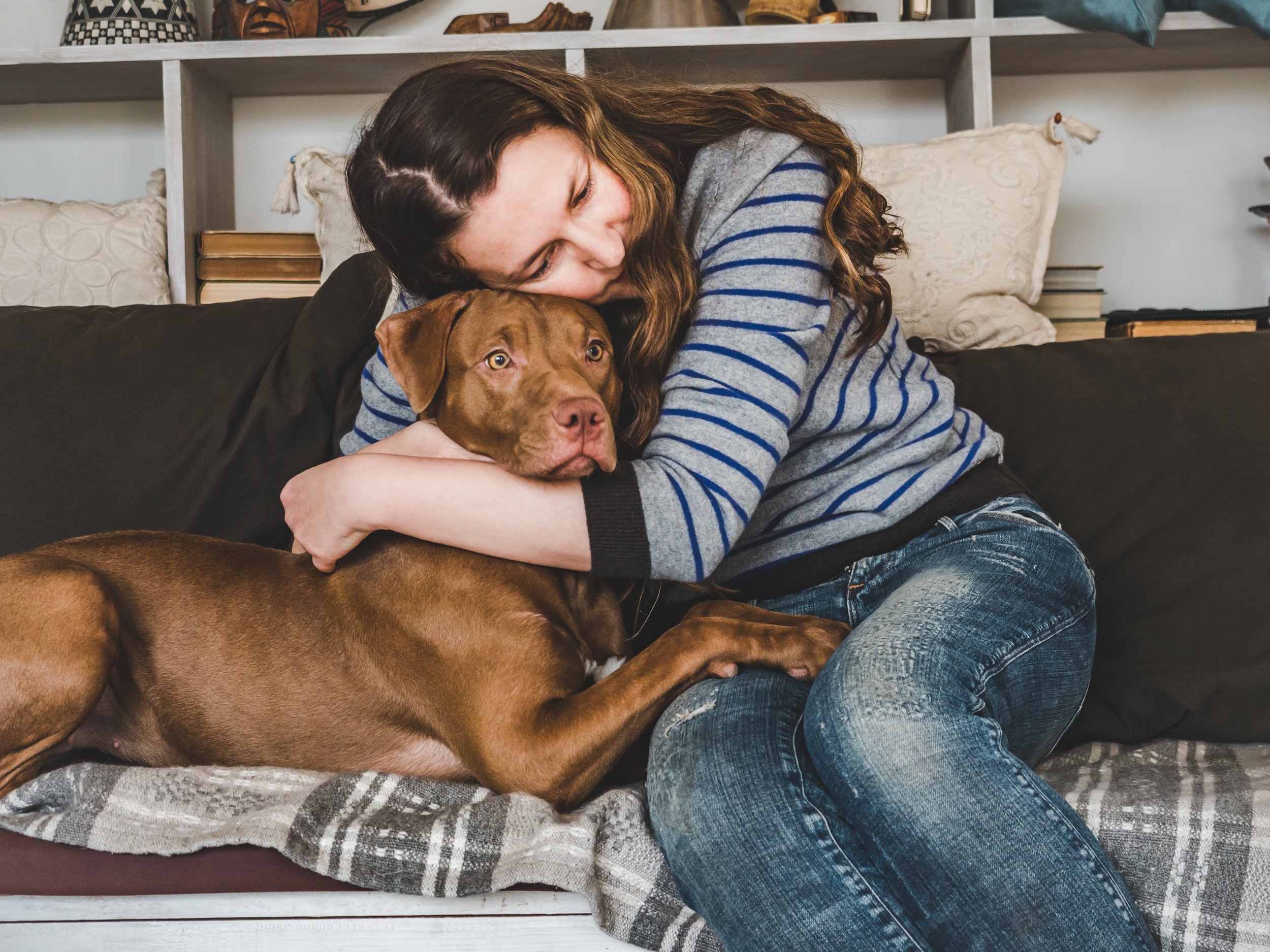Believe in Dog Podcast
A Dog Mom Podcast About Training, Rescue & Wellness

— I believe a dog can be a healer, a teacher and an inspiration.
— Erin Scott

Say Hi to Your Dog for Me!
Hi, I’m Erin. My dogs - past & present - have been the greatest healers, teacher and inspirations in my life.
I’m here to share with you everything I’ve learned along the way — and am still learning!
My mission is for you to know that you’re never alone as a Pet Parent — even in the hard times too.
Pet parent’s “gut check”

Latest Episodes
What happens when the bond between a K9 handler and his retired working dog is tested by something no training can prepare them for?
In this episode, federal law enforcement officer Chris Bingham shares the powerful, behind-the-scenes story of his retired K9 partner, Tambo — a dog who served with unwavering loyalty and is now facing one of the toughest battles a family can experience: hemangiosarcoma, a fast-moving and often terminal diagnosis in dogs.
Chris describes how he and Tambo first became partners, how their bond deepened over years of working side by side, and what it really looks like to help a working dog transition into retirement after a lifetime of service.
Why are so many dogs today anxious, reactive, or struggling with behavior issues?
In this episode, I’m joined by Kim Brophey, Applied Ethologist, Dog Behavior Expert and creator of the groundbreaking LEGS Framework, to explore the root causes behind dog behavior challenges — including anxiety and reactivity.
When we step back and look at dogs through a wider, more compassionate lens, it becomes painfully clear how often our modern expectations clash with who our dogs actually are and what they truly need to thrive.
When the world feels heavy — or your dog’s health or behavior challenges have you running on empty — how do you find your calm again? This episode is your reminder that your dog doesn’t need you to be perfect; they need you to be present.
We’re rethinking self-care as something deeper than bubble baths and timeouts — it’s an energetic reset that helps both you and your dog feel more grounded and connected. You’ll learn simple, free exercises you can do right now — no equipment or experience needed.
Whether it’s the chaos of the world or the stress of caring for your dog, this episode will leave you feeling more grounded, present and deeply connected — to yourself and your animal.
What if “senior” didn’t mean the end—but the beginning of a whole new chapter with your dog?
Helen reminds us that senior does not mean the end — our older dogs can still live full, joyful lives (and yes, even learn new tricks!). We talk about how to recognize important senior dog behavior changes, shifts in tolerance toward children or other dogs, and physical signs that tell us it’s time to adjust care.
Helen also shares practical, compassionate tips for making home adjustments for senior dogs—from mobility support to creating safer spaces—so our pets stay comfortable as they age. And when it’s time to face difficult decisions, Helen walks us through her three-pronged quality of life scale and what she calls “quality of death,” helping us advocate for our dog at the vet office and approach medical decisions with clarity and love.
In this episode, we’ll meet Joan Dalton, author of the book Second Chances: The Transformative Relationship Between Incarcerated Youth and Shelter Dogs. Joan is the founder of Project POOCH, a program pairing teens in juvenile detention with shelter dogs.
What started as an idea grew into a transformative program that not only rehabilitates dogs in need of homes but also teaches young people the skills and compassion they need to heal and move forward.
What would you do if buying your dream home meant giving up your dog?
In this episode, Cait and Ilona from the PG Pet Unity Project share the shocking history of why “pit bull” dogs were banned in PG County in the 1990s, and the deeper consequences this law has had on families, the animal welfare system and the dogs.
From wasted taxpayer dollars to ineffective public safety outcomes, we dig into why breed-specific legislation fails families, communities – and the dogs.
Has your dog played the sniffy game yet today?
Today we’re joined by Dianna Santos, founder of Scent Work University, to explore one of the most powerful — and fun — activities you can do with your dog: scent work.
We’ll dive into why scent work is especially beneficial for reactive and fearful dogs, including how it has helped my own nervous senior guy. Dianna explains how scent work provides the kind of mental stimulation that can actually tire dogs out faster than physical exercise, making it a great option for any lifestyle.
You’ll also learn simple ways to get started at home with easy games, plus tips for introducing scent work to puppies, seniors, and even dogs with special needs.
Did you set goals for you & your dog this year?
Back in February, I shared the goals I set for myself & my dogs in 2025 — and now that we’re [a little more than] halfway through the year, it’s time for a check-in!
I’m sharing our progress (and setbacks!) not just to update you, but for my own accountability.
If you have a senior dog in your home, when’s the right time to bring a new dog into the mix? For longtime dog trainers Kathy Callahan and Helen St. Pierre, the answer isn’t simple – it depends – on your dog, your household and your bandwidth.
Kathy & Helen weigh in on setting appropriate expectations, building a support system, and what to watch for when it comes to changes in your senior dog’s health and behavior. We’ll also learn the best practices for introductions that will give both your old and new dog the best chance at a harmonious relationship.
Whether you're currently living with a beloved old dog, recently said goodbye, or are contemplating what comes next, Kathy & Helen offer guidance, perspective and compassion for wherever you are on the journey.
Have you ever thought about your time with your dog as a chapter of your life?
For teacher, speaker, and lifelong journaler Patricia Eagle, her story is told in ten chapters – with each devoted to a dog who changed her life.
In her new book, Dog Love Stories: The Canines Who Changed Me, Patricia reflects on the love, lessons, and legacies each dog left behind. While some chapters are long and others short, all are deeply meaningful.










